Metallic vs. Polymeric filters in water treatment: When to choose CFL’s stainless steel solutions
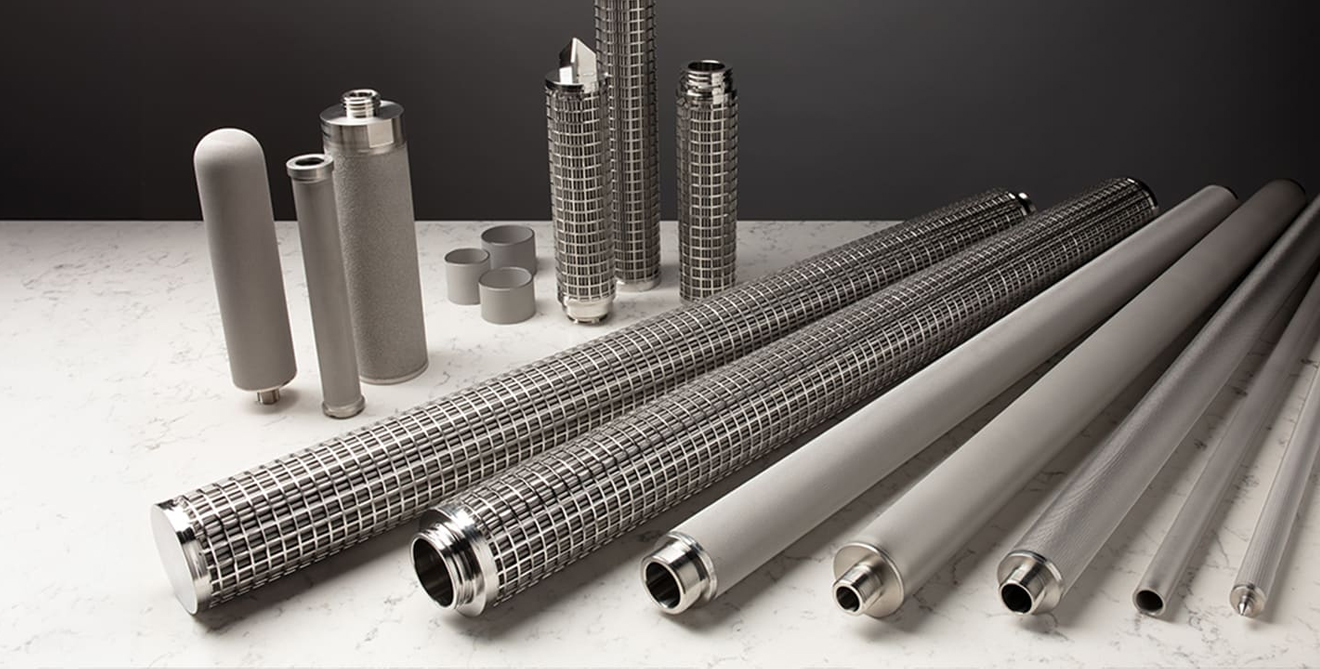
Metallic vs. Polymeric filters in water treatment: When to choose CFL’s stainless steel solutions
Ensuring water purity for various uses including consumption, industrial applications, and environmental protection, relies heavily on effective filtration – a process vital across countless industries. When designing filtration systems, a key consideration is the selection of the filter element material. The primary options available are polymeric and metallic, and each comes with its own specific strengths and weaknesses.
Whilst polymeric filters have their place, metallic filters, particularly the robust options engineered by Carbis Filtration (CFL), provide unparalleled performance in demanding conditions. This blog explores the characteristics of both filter types, compares them across key performance indicators, and clarifies when CFL’s metallic filters are the optimal choice for reliability and long-term value.
Understanding polymeric filters
Polymeric filters encompass a wide range of materials and configurations, including pleated cartridges, depth filters, membrane filters (such as reverse osmosis, ultrafiltration, microfiltration), and various woven and non-woven fabrics manufactured from polymers such as polypropylene (PP), polyethylene (PE), nylon, PTFE, and polyester.
Common advantages
- Lower initial cost: The primary attractiveness of polymeric filters often resides in their lower initial procurement cost. Standard polymeric cartridges and bags are mass-produced, making them readily available and seemingly inexpensive on a per-unit basis.
- Lightweight: Polymeric filters are typically lightweight and easy to handle due to their lower density compared to metals.
- Specific chemical resistance: Certain polymers, such as PTFE, offer excellent resistance to particular chemicals.
- Disposable options: Many polymeric filters are designed for single use, which can be advantageous in applications where cleaning is impractical or poses a risk of cross-contamination.
- Variety: Polymeric filters come in diverse forms such as cartridges, capsules, bags, and flat sheet membranes, allowing for flexible system design.
Limitations of polymeric filters
- Temperature sensitivity: Most polymers have restricted operating temperature ranges and can deform or fail at elevated temperatures common in many industrial processes.
- Chemical compatibility issues: Exposure to certain acids, bases, solvents, or oxidisers can cause many polymers to degrade, swell, or leach, compromising performance.
- Lower mechanical strength: Polymers are less robust than metals, making them susceptible to damage from high differential pressures, system pulsations, or abrasive particles.
- Limited service life in demanding roles: Frequent replacement is often necessary due to degradation, irreversible fouling, or mechanical failure.
- Difficult to clean effectively: Thermal and chemical limitations often prevent thorough cleaning, leading to premature disposal.
- Higher waste generation: The frequent need for replacement contributes to significant waste, impacting disposal costs and environmental considerations.
Understanding metallic filters
CFL’s metallic filters offer a fundamentally different performance profile. Stainless steel filters are available in various forms:
- Woven Wire Mesh
- Wedge Wire Screens
- Sintered Metal Filters
Key advantages of CFL metallic filters
The diverse metallic constructions offered by CFL share several fundamental advantages over polymeric alternatives:
1. Exceptional strength and durability
All CFL metallic filters feature superior mechanical strength inherent to their metallic construction. They resist deformation under pressure, and are engineered to withstand operational stresses such thermal cycling, vibration induced fatigue and cyclic loading – delivering exceptional durability and long service life.
2. High-temperature tolerance
Metallic filters significantly outperform polymer based alternatives at elevated temperatures, maintaining both structural integrity and filtration efficiency in demanding applications involving steam, hot gases, and high-temperature liquids.
3. Superior pressure resistance
CFL’s metallic filters are designed to handle substantial differential pressures and system surges without risk of collapse, mechanical damage, or bypass.
4. Precise and stable filtration performance
CFL metallic filters are engineered for reliable particle retention according – be it the defined pores of sintered media, the exact apertures of woven wire mesh, or the precision slots of wedge wire. These ratings remain stable even under challenging operating conditions.
5. Excellent cleanability and reusability
A defining benefit of metallic filters is their regenerative capability, enabling repeated and effective cleaning. Methods such as backflushing, chemical cleaning (CIP/SIP), ultrasonic treatment, or thermal regeneration can restore filtration performance, significantly extending service life and minimising waste.
6. Material purity and inertness
CFL’s high-quality metallic alloys are inherently inert, non-leaching and resistant to media migration, ensuring product purity in sensitive applications such as food and beverage, pharmaceuticals, and electronics.
Limitations to consider for metallic filters
1. Higher initial investment
Due to the advanced materials and precision manufacturing processes, metallic filters typically carry a higher upfront cost compared to standard polymeric alternatives.
2. Increased weight
Metals are denser than polymers, which can influence the design of very large filter systems. However, the extended service life of metallic filters often offsets concerns related to handling frequency.
3. Specific aggressive chemical considerations
While stainless steel offers broad chemical resistance, highly aggressive environments, such as those involving elevated chloride concentrations or strong reducing acids – may necessitate the use of more specialised corrosion-resistant alloys, which CFL can supply to meet specific application demands.
Polymeric vs. CFL’s metallic filters: A comparative summary
The optimal choice depends heavily on the application’s specific demands. Here’s a direct comparison focusing on critical factors:
| Feature | Polymeric Filters | CFL stainless steel filters | Critical Factor for Demanding Use |
| Durability | Low; susceptible to damage, wear, creep | Very high; robust, rigid, impact resistant | Metallic Filters |
| Temperature limit | Generally low (< 100-150Ā°C, often lower) | High (several hundred Ā°C, depending on alloy) | Metallic Filters |
| Pressure limit | Low; prone to collapse/deformation | Very high; withstands significant pressure differnetials | Metallic Filters |
| Chemical resistance | Variable; some excellent (PTFE), others limited | Broad (esp. 316L); specialised alloys available | Generally Metallic Filters |
| Cleanability | Often Limited/Disposable | Excellent; multiple regeneration cycles possible | Metallic Filters |
| Reusability | Typically low/Single-use | Very high; long service life | Metallic Filters |
| Pore structure | Can vary; potential for compression | Precisely controlled and stable | Metallic Filters |
| Media migration | Possible with some types (fibre release) | None | Metallic Filters |
| Extractables | Potential issue depending on polymer/process | Negligible | Metallic Filters |
| Initial Cost | Lower | Higher | Polymeric Filters |
| Total Cost of Ownership | Higher (due to frequent replacement and disposal) | Lower (due to longevity and reusability) | Metallic Filters |
| Weight | Lower | Higher | Polymeric Filters |
| Environmental Impact | Higher (disposability leads to more waste) | Lower (reusability minimises waste) | Metallic Filters |
When to choose metallic filters?
While polymeric filters can be suitable for less demanding, ambient temperature, or single-use applications, CFL’s diverse range of metallic filters becomes the clear and often indispensable choice under more challenging conditions:
1. High-temperature processes
CFL metallic filters provide essential thermal stability for applications involving steam, hot water, thermal fluids, or hot gases where polymers would rapidly degrade.
2. Aggressive chemical environments
When filtering fluids containing chemicals that degarde polymers, the robust material integrity of CFL’s stainless steel or specialised alloy filters ensures reliable, long-term performance.
3. High-pressure operations & system upsets
CFL’s metallic filters, with their inherent mechanical strength, maintain structural and filtration integrity under high operating pressures, pressure spikes, and flow fluctuations.
4. Critical purity & product quality
In industries such as pharmaceuticals, food and beverage, and electronics, the cleanliness, inertness, and reliable particle retention of CFL’s metallic filters are vital.
5. Abrasive fluid streams
The inherent durability of a metallic structure resists wear from abrasive particles, ensuring sustained performance in applications where polymers would rapidly erode.
6. Extended service life & reduced downtime
For critical processes where reliability is paramount and maintenance interruptions must be minimised, the durability and cleanability of CFL’s metallic filters offer significant operational advantages.
7. Minimising waste & optimising long-term costs
Despite a higher initial investment, the extended service life and reusability of CFL’s metallic filters result in a lower Total Cost of Ownership and contribute to sustainability goals by minimising waste.
Final thoughts
The selection between polymeric and metallic filters is a critical engineering decision. While polymeric options may offer upfront cost advantages for some duties, their limitations become apparent in more demanding industrial environments.
For processes involving high temperatures, elevated pressures, aggressive chemicals, stringent purity requirements, or where long-term reliability and reduced operational costs are paramount, CFL’s comprehensive range of metallic filtration solutions stands out.
From high-performance sintered media to precision woven wire cloth and robust wedge wire screens, CFL delivers engineered metallic filters designed not only to perform but to endure – providing sustained value throughout their service life. Specifying CFL’s metallic solutions is an investment in operational robustness and long-term process efficiency.
Latest News
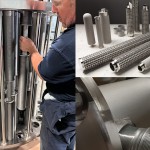
How CFL’s filtration and separation solutions outlast conventional systems
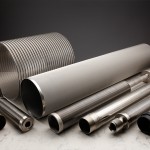
Profile Wedge Wire or Woven Wire Mesh? Choosing the Optimal Solution for Process Efficiency and Optimisation
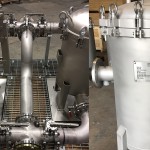
When is filtration and separation equipment rental the best option?

How do high-quality filtration systems deliver a longer-term investment?

Investing in future champions: CFL’s commitment to supporting local youth sports
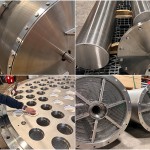

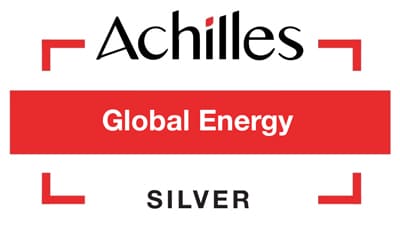




No comments yet.